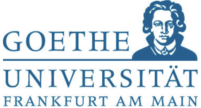The Team Outliers (Rebecca Barter and Shamindra Shrotriya) from UC Berkeley have won the Geisinger Health Collider (http://www.bigdata.uni-
Among the finalists for phase 2, three teams from the Frankfurt Big Data Lab (Goethe University in Germany): Team Dr. Data (Kim Hee, Todor Ivanov), Team Data DNA (Raul Soni), Team Rocketloop (Alex Klein, Florian Reifschneider); and one from Stanford: Team Palm and Digits (PengPeng Li, Bing Wu)
Rebecca is a PhD student in the Department of Statistics at UC Berkeley (advised by Professor Bin Yu and Professor Jasjeet Sekhon), and Shamindra is an MA student also in the Department of Statistics. For their project, Team Outliers focused on an analysis of Chronic Obstructive Pulmonary Disease (COPD) and its association with environmental factors.
Students in the competition were given access to aggregate electronic medical record data to help Geisinger predict personalized treatment outcomes, better allocate healthcare resources, and obtain early warnings in scenarios of crisis. As the winners of the competition, Team Outliers will receive paid internships from Geisinger Health.
“This project provided us with a rare and unique opportunity to get some hands-on-experience dealing with real electronic medical record (EMR) data from Geisinger,” said Rebecca Barter from Team Outliers,”There are so many questions that one can ask of such a rich, yet typically underutilized source of data, the answers to which truly have the potential to make a difference in the field of medicine. Further, the problem of blending this EMR data from Geisinger with external environmental data presented a unique set of challenges which, together with various statistical and machine learning methods, allowed us to tackle an even broader class of questions, such as how does the weather affect pneumonia? or does the level of pollution in a neighborhood influence ones risk of developing COPD?”
Rebecca and Shamindra were interested in discovering factors that help predict whether a new patient who has been diagnosed with pneumonia might also have COPD. To achieve this goal they combined data from electronic medical records (provided by Geisinger) with publicly available data on pollution and the weather. Ultimately, they were able to construct a model to help predict undiagnosed COPD for new pneumonia patients, and also make suggestions about the types of data that Geisinger could track in the future to improve the model’s accuracy.
“Our team was delighted to read such a clean and well researched investigation,” said Dr. Nicholas Marko, Chief Data Officer at Geisinger Health of Team Outlier’s project, “Their figures were impeccable (and, more importantly, relevant), and their introduction/risk factors sections demonstrated that they really did their homework on the subject.”
Congratulations to Shamindra and Rebecca for all your hard work to win the collider!
Download the winning presentation below:
